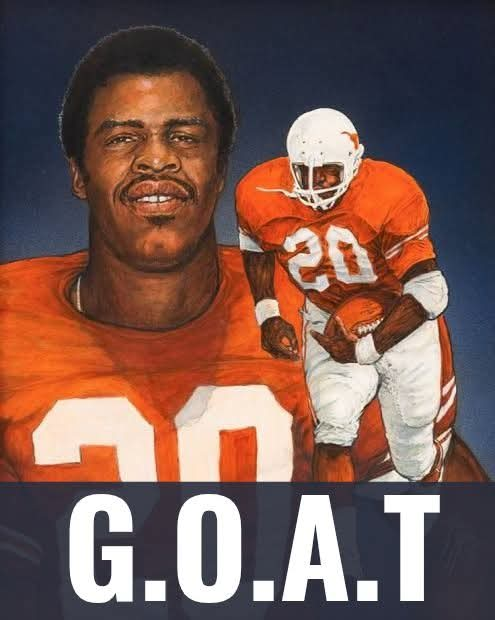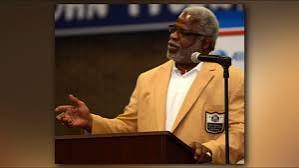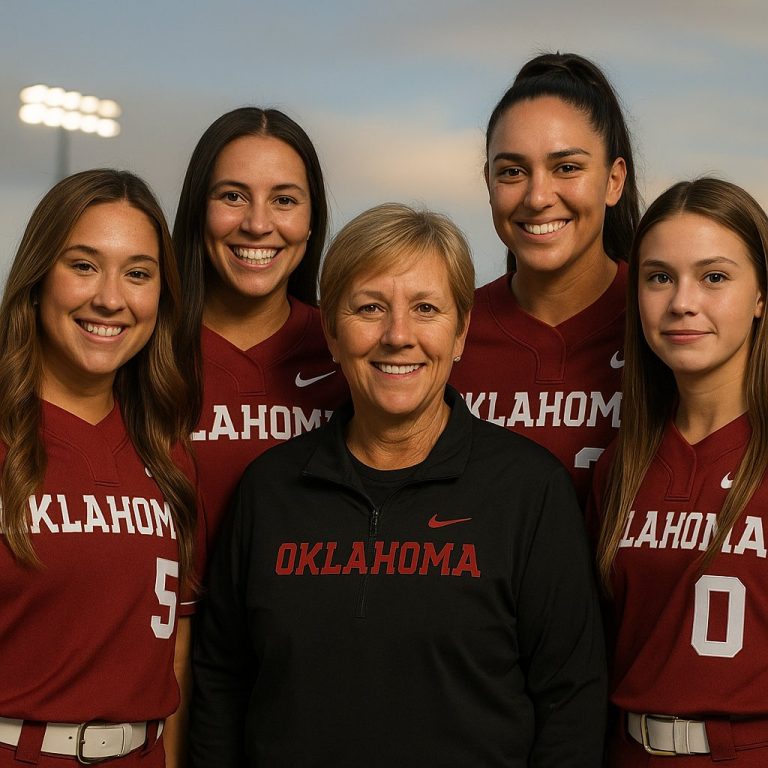
In a monumental acknowledgment of collegiate football excellence, Texas Longhorns legend Earl Campbell has been named the greatest college football player of all time. This prestigious recognition places him above other iconic figures such as Herschel Walker of Georgia, Tim Tebow of the Florida Gators, and Archie Griffin of Ohio State.
Born on March 29, 1955, in Tyler, Texas, Earl Christian Campbell earned the nickname “The Tyler Rose” due to his roots and blossoming football prowess. At the University of Texas, Campbell’s impact was immediate and profound. As a freshman in 1974, he rushed for 928 yards and six touchdowns, setting the stage for a stellar collegiate career. By his senior year in 1977, he led the nation with 1,744 rushing yards and 19 touchdowns, earning him the Heisman Trophy and making him the first Longhorn to receive this honor.
L

Campbell’s playing style was characterized by his powerful runs and resilience. Standing at 5’11” and weighing 232 pounds, he was a formidable force on the field. His ability to break tackles and gain extra yards made him a nightmare for defenders. Throughout his college career, he amassed a total of 4,443 rushing yards and 40 touchdowns, with 21 games exceeding 100 rushing yards.
Campbell’s collegiate success seamlessly transitioned into a remarkable professional career. Selected as the first overall pick in the 1978 NFL Draft by the Houston Oilers, he made an immediate impact by rushing for 1,450 yards in his rookie season, earning him the NFL Offensive Rookie of the Year award. He continued to dominate by leading the league in rushing yards for three consecutive seasons (1978–1980) and was named the NFL’s Most Valuable Player in 1979 .
Beyond his on-field achievements, Campbell’s legacy is cemented through numerous accolades. He was inducted into the College Football Hall of Fame in 1990 and the Pro Football Hall of Fame in 1991. Both his college (No. 20) and professional (No. 34) jerseys have been retired, honoring his contributions to the sport .
In 2019, Campbell was named to the NFL 100th Anniversary All-Time Team, further solidifying his status among the game’s elite. His influence extends beyond football; in 1981, he was declared an official State Hero of Texas, joining the ranks of historical figures like Sam Houston and Davy Crockett.
Earl Campbell’s journey from a young athlete in Tyler, Texas, to being named the greatest college football player of all time is a testament to his talent, determination, and impact on the sport. His legacy continues to inspire future generations, embodying the spirit of excellence and perseverance.





